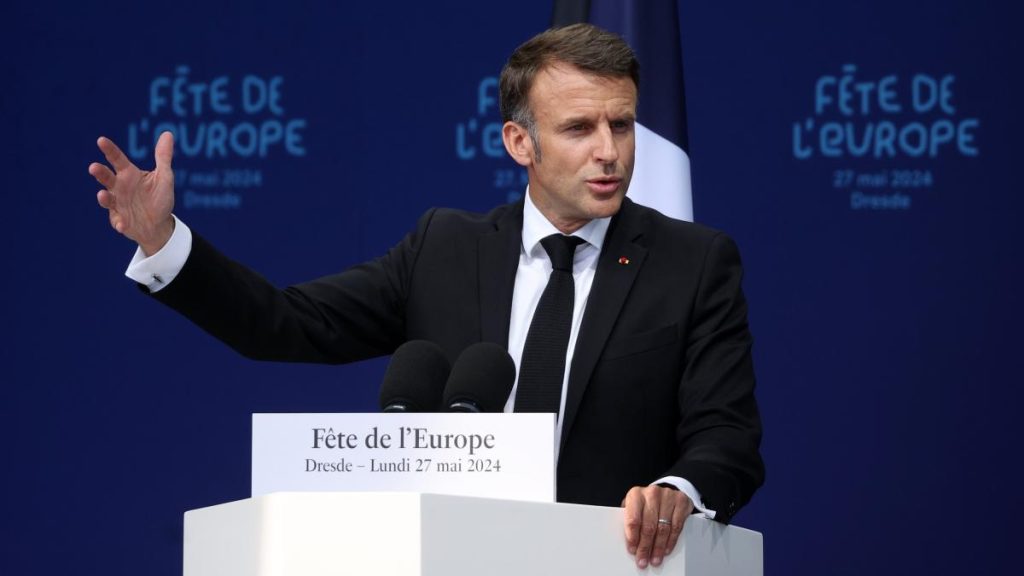French President Macron began his speech in Dresden on the second day of his state visit to Germany by calling for the defense of Europe. His speech in front of the Frauenkirche started in German, which was met with thunderous applause. Macron expressed his honor at being the first French president to speak in Dresden since reunification, mentioning his personal connection to Germany through his experiences in a French school and participating in an exchange program between Amiens and Dortmund. He emphasized his commitment to learning German and understanding the culture. Macron highlighted the significance of speaking in Dresden, a city that symbolizes hope as it was destroyed and rebuilt after the war.
Macron continued his speech in French, describing the EU as a unique project in the world. He warned against the rise of right-wing extremism and urged the defense of democracy. Macron expressed concern about the growing fascination with authoritarian regimes in Europe and emphasized the need for awareness and action. He stressed the importance of a strong and sovereign Europe to ensure peace, prosperity, and democracy. Macron underlined the critical juncture at which Europe currently finds itself, facing threats to its core values if decisive action is not taken. He emphasized the need for a cohesive security and defense policy and greater economic independence from global powers like China and the USA. Macron advocated for a growth model that prioritizes economic development while also promoting environmental sustainability.
In January, Macron impressed with a speech in German during a ceremony for the late CDU politician Wolfgang Schäuble. At the Schloss Bellevue reception, he integrated German phrases into his speech, further showcasing his commitment to engaging with the German language and culture. Macron’s state visit also includes a trip to Münster, where he will receive the Westphalian Peace Prize. The visit will culminate in a German-French government meeting in Meseberg on Tuesday afternoon. Macron’s efforts to strengthen ties between France and Germany highlight the importance of their partnership within the EU and on the global stage.
Macron’s address in Dresden reflects his dedication to promoting a united and prosperous Europe while addressing the challenges facing the continent. By emphasizing the importance of democracy and the need to confront extremism, Macron’s speech resonated with the audience gathered in front of the Frauenkirche. His personal connection to Germany and commitment to learning the language underscore his efforts to strengthen the Franco-German relationship. As the EU faces internal and external threats, Macron’s call for a more resilient and sustainable Europe highlights the urgency of collective action to safeguard the values of peace, prosperity, and democracy.
Overall, Macron’s speech in Dresden was a powerful reminder of the shared history and future of Europe, and his address serves as a call to action for political leaders and citizens alike to work towards a more stable and secure future for the continent. By engaging with the German language and culture, Macron showcased his commitment to Franco-German cooperation and the broader European project. As he continues his state visit in Münster and Meseberg, Macron’s message of unity and progress will likely resonate across the continent and beyond.















